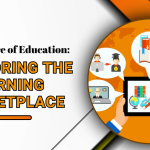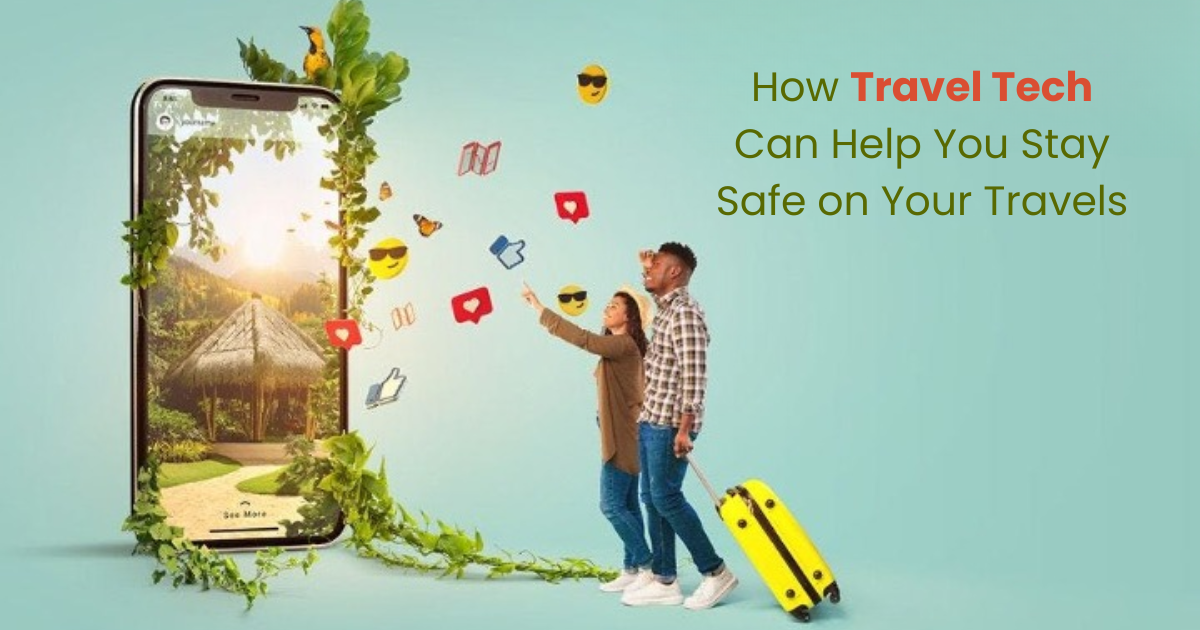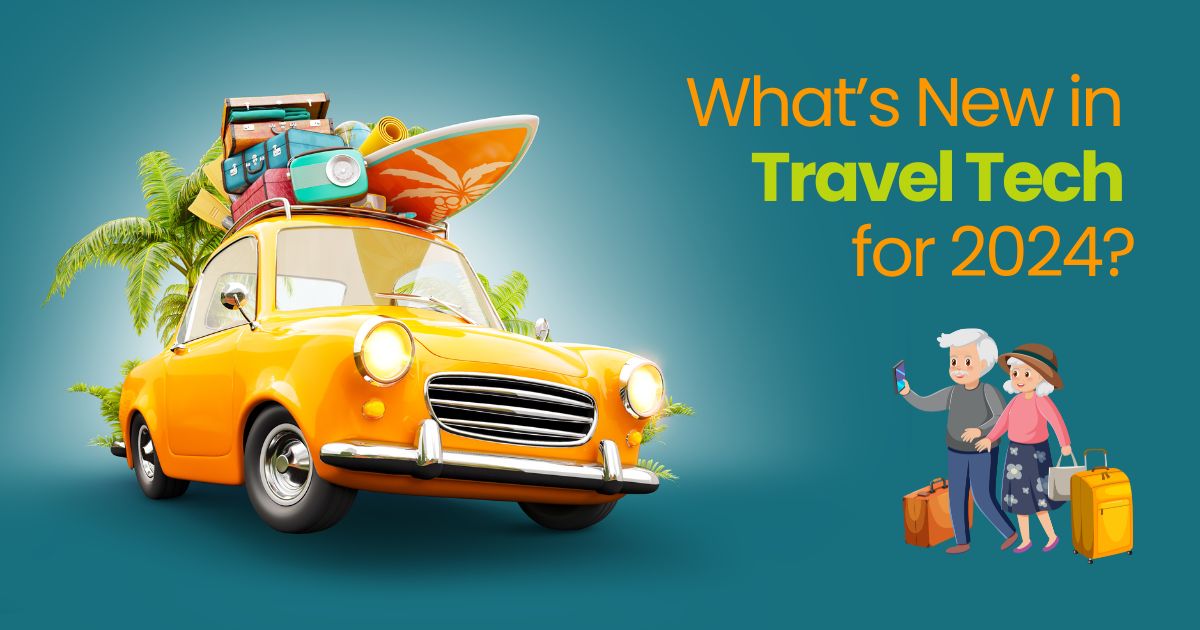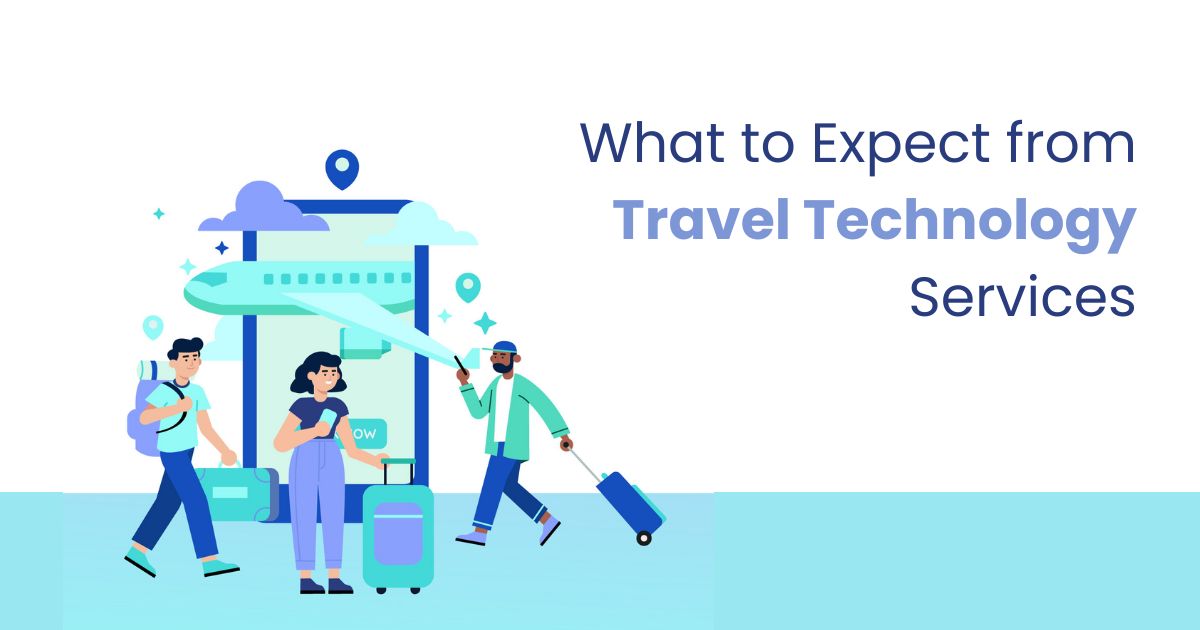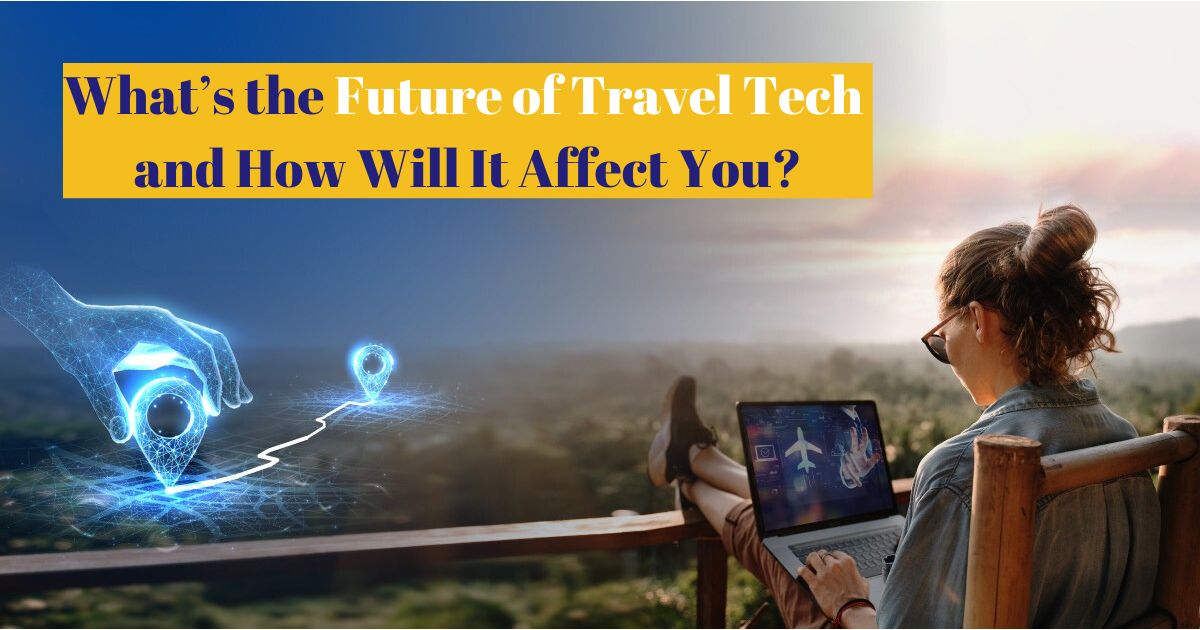Customer experience is one of the most important factors impacting success in the ever-changing travel business. Travel technology services have become a game-changer as technology advances, revolutionizing the way travelers plan, book, and enjoy their travels. This article explores the various aspects that lead to a smooth and enjoyable travel experience, as well as the diverse influence of travel technology services on improving the customer experience.
Travel Technology Solutions: Enhancing Your Travel Journey with Advanced Technology SolutionsI. Digital Transformation in Travel: A Paradigm Shift
1.1 The Evolution of Travel Technology
The journey of travel technology has been nothing short of revolutionary. From the advent of online booking platforms to the integration of artificial intelligence (AI) and machine learning (ML) algorithms, the industry has witnessed a paradigm shift.
1.2 The Rise of Online Booking Platforms
Online booking platforms have become the backbone of the travel industry, offering customers the convenience of planning and booking their entire journey from the comfort of their homes. With user-friendly interfaces and secure payment gateways, these platforms have streamlined the booking process, making it more accessible and efficient.
II. Personalization: Tailoring Experiences for Every Traveler
2.1 Harnessing Big Data for Personalized Recommendations
One of the significant impacts of travel technology services is the ability to leverage big data for personalized recommendations. By analyzing customer preferences, behaviors, and past interactions, travel platforms can provide tailor-made suggestions, ranging from destination recommendations to accommodation choices and activity preferences.
2.2 Artificial Intelligence and Machine Learning in Personalization
The integration of AI and ML algorithms enhances the personalization aspect further. These technologies can predict user preferences, learning from patterns and refining recommendations with each interaction. This not only simplifies the decision-making process for travelers but also ensures a more satisfying and relevant experience.
III. Seamless Travel Planning: From Inspiration to Itinerary
3.1 Inspirational Content: Fueling Wanderlust
Travel technology services are not limited to transactional processes; they play a crucial role in inspiring and guiding travelers. Platforms now offer rich content, including travel blogs, destination guides, and immersive videos, creating a holistic experience for users. This inspirational content serves not only to entice travelers but also to assist them in shaping their itineraries.
3.2 Itinerary Planning Tools: Crafting Personalized Journeys
Gone are the days of generic travel itineraries. Today, technology enables the creation of personalized itineraries based on individual preferences. From suggesting local hotspots to optimizing routes for efficiency, itinerary planning tools contribute to a smoother and more enjoyable travel experience.
IV. Augmented Reality (AR) and Virtual Reality (VR): Bringing Destinations to Life
4.1 AR and VR in Travel Exploration
The immersive experience offered by AR and VR technologies is reshaping how travelers explore destinations. Virtual tours, powered by VR, allow users to virtually visit places before making a decision. AR, on the other hand, enhances on-site experiences by providing real-time information about landmarks, historical sites, and more.
4.2 Enhancing Accommodation Selection with AR
AR is also playing a pivotal role in the accommodation selection process. Users can virtually “walk through” hotel rooms, inspect amenities, and even experience the surrounding neighborhood, aiding in making informed decisions. This not only reduces the likelihood of unpleasant surprises but also adds a layer of excitement to the pre-travel phase.
V. Contactless Travel: Navigating the Post-Pandemic Landscape
5.1 Contactless Booking and Check-in
The global pandemic has accelerated the adoption of contactless solutions in the travel industry. Travel technology services have responded by offering contactless booking and check-in options. This not only minimizes physical contact but also enhances the overall efficiency of the travel process.
5.2 Digital Health Passports: A Seamless and Secure Solution
Digital health passports, powered by advanced travel technology, have become a crucial component in the post-pandemic travel landscape. These passports store health-related information, ensuring a secure and streamlined process at airports, hotels, and other travel touchpoints.
VI. The Role of Chatbots and Virtual Assistants in Customer Support
6.1 Instant Assistance with Chatbots
In the realm of customer support, chatbots have emerged as indispensable tools. Integrated into travel platforms, these AI-driven assistants provide instant responses to queries, assist in booking processes, and offer real-time updates. This not only enhances customer satisfaction but also reduces the workload on human support agents.
6.2 Voice-Activated Virtual Assistants: A New Frontier
The evolution of virtual assistants has now ventured into the realm of voice activation. Travelers can use voice commands to get information about their flights, check weather updates, or even receive local recommendations. This hands-free approach adds an extra layer of convenience, especially for travelers on the move.
VII. Sustainability and Eco-Friendly Travel Tech Solutions
7.1 Green Technologies in Transportation
As the travel industry embraces sustainability, technology is playing a vital role in reducing its environmental impact. Green technologies, such as electric vehicles and biofuels, are becoming increasingly prevalent in transportation services, offering eco-conscious travelers more sustainable options.
7.2 Carbon Footprint Calculators and Offset Programs
Travel technology services are also empowering travelers to make environmentally conscious choices. Platforms now integrate carbon footprint calculators, allowing users to assess the environmental impact of their journeys. Additionally, some services offer carbon offset programs, allowing travelers to contribute to eco-friendly initiatives to balance out their emissions.
VIII. Overcoming Challenges: Security and Data Privacy Concerns
8.1 Ensuring Cybersecurity in Travel Tech
As the reliance on technology in the travel industry grows, so does the importance of cybersecurity. Ensuring the safety of user data, financial transactions, and sensitive information is paramount. Travel technology services must implement robust security measures to protect both travelers and the industry from cyber threats.
8.2 Striking a Balance: Personalization vs. Privacy
While personalization is a key driver of customer satisfaction, there is a delicate balance to be maintained regarding data privacy. Travel technology services must navigate the fine line between offering personalized experiences and respecting user privacy. Transparent data policies and user consent mechanisms are crucial in building trust.
Conclusion:
The impact of travel technology services on elevating the customer experience is both profound and transformative. From personalized recommendations to immersive technologies and sustainable solutions, the travel industry is undergoing a digital renaissance. As we navigate the future of travel tech, striking a balance between innovation, security, and ethical considerations will be key to ensuring a seamless and enriching journey for every traveler. The synergy between human creativity and technological prowess continues to redefine the possibilities, promising a future where the travel experience is not just a means to reach a destination but an adventure in itself.



